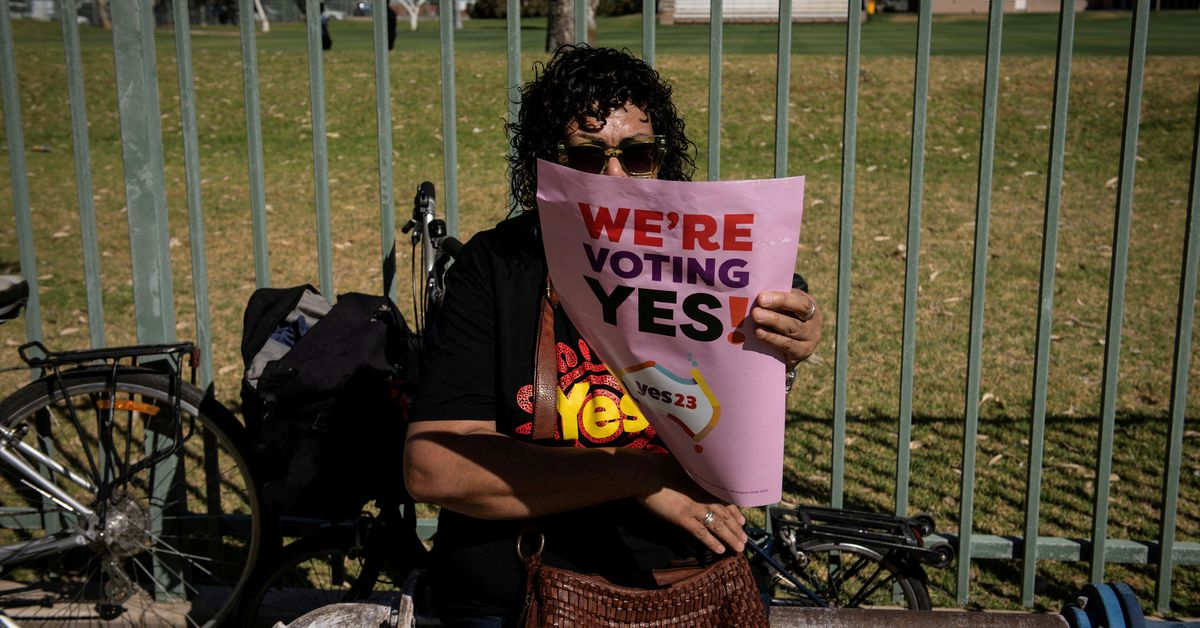Australians have to vote ‘Yes’ or ‘No’ to a question asking whether they agree to alter the 122-year-old constitution to recognise Aboriginal and Torres Strait Island people, and create an Indigenous body, called the Voice to Parliament, that can provide advice to the government on Indigenous issues.
About 5 million Australians have already voted at early polling centres, overseas and through postal votes. The latest opinion poll released on Thursday predicted the ‘No’ camp sweeping the polls with a lead of 56% over the ‘Yes’ vote that’s at 38%, with some 6% undecided.
“Kindness costs nothing,” Albanese said in a speech during a news conference from Adelaide on Friday
“This is a time where Australians have that opportunity to show the generosity of spirit that I see in the Australian character where at the worst of times we always see the best of the Australian character,” he said.
Australia’s Indigenous citizens, about 3.8% of the country’s 26 million population, have inhabited the land for about 60,000 years but are not mentioned in the constitution and track below national averages on most socio-economic measures.



Why not treat everyone equally, and avoid cementing differentiation of people based on their descent?
If everyone was treated equally, we wouldn’t need the voice.
Because Indigenous people have lived in Australia for over 60,000 years and are not officially recognized as they should be.
Aus was inhabited by white people when they were sent there as prisoners ffs.
“Why don’t those uppity darkies just accept being ignored as they have for over a century?”
If you know nothing about a subject, don’t open your mouth.
From what I’ve seen they really do just get a voice, but no stick. Is that accurate?
That seems to be a sound way of expressing it.
I’m definitely not an authority on the situation but from what I gather it’s very much like the relationship between the US and native nations here. There are treaties and agreements and so on… but the US is very selective about actually giving a shit and more often than not will err on the side of ignoring anything that happens on a reservation.
The same seems to be true between the Aussie government and the Indigenous peoples, but there are nuances there that my white American ass is nowhere near qualified to go into.
If there’s no amplification (extra representatives) or any real enforcement, isn’t it just kind of performative? Like I’m sure we bring ‘relevant’ voices in to testify before congress, but do you think it moves votes?
Ask MLK, Jr. what “performative” means when it comes to moving votes.
Ignorance is the greatest incubator of racist bacteria. The moment you put some extra heat or light on it, it tends to die off or at least fuck back off under the rock of irrelevancy it crawled out of.
I can see your point - I just think it’d be better to provide oversized representation or something. Not like an American’s criticism of treating natives holds a lot of weight anyway.
In an ideal world, sure. But no one has the luxury of just pretending history never happened.
That only works if we have a fair system and an equal starting point between the groups.
You can’t get half way into a race and then say “ok, now that I’m ahead let’s all run the same speed.”